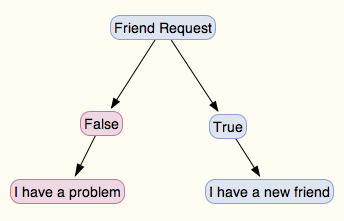 Recently, I was contacted via Facebook messaging by a woman who was concerned that a man she’d recently friended on Facebook might be trying to con her. It all began with a Friend request on Facebook. A man she didn’t know sent her a request and she decided to accept the request. A day later, she had a message, “Hello how are you doing? Thanks for accepting me.” What she didn’t know was how intrusive her new friend was going to become.
Recently, I was contacted via Facebook messaging by a woman who was concerned that a man she’d recently friended on Facebook might be trying to con her. It all began with a Friend request on Facebook. A man she didn’t know sent her a request and she decided to accept the request. A day later, she had a message, “Hello how are you doing? Thanks for accepting me.” What she didn’t know was how intrusive her new friend was going to become.
The messages between the two rapidly escalated to a highly personal level and then began moving into discussions of a financial nature. In fact, less than two weeks after they met, the new friend was asking for money. To make matters worse, he wanted the money sent via Western Union. (In case you didn’t know, once you send money via Western Union, it’s Gone. And yes, the capital “G” was deliberate.)
Everyone thinks that they’d never fall for something like this, but, the truth is that under the right circumstances, we’re all vulnerable. A recent survey found that 8 in 10 respondents had been approached about a fraudulent financial transaction. The sad fact is that more than 1 in 10 of those respondents lost money in the deal.
Scammers operate on what I like to call the “fortune teller” methodology. Ask a question, listen to the response, craft another related question that builds on the response. It’s a highly effective methodology that has worked for a very long time. In this case, fortunately, the woman reached out for advice before she sent the money. I’ve told her to run, don’t walk away. She should also report the conversation with her new “friend” as spam and report him also.
Epilogue: I’ve heard back that she took my advice and reported this. Now, she’s been contacted by another guy using the same methods. My advice back to her will be the same with one additional piece of information: these guys often have multiple profiles. Now that she knows she’s vulnerable, she’ll need to be doubly careful.

